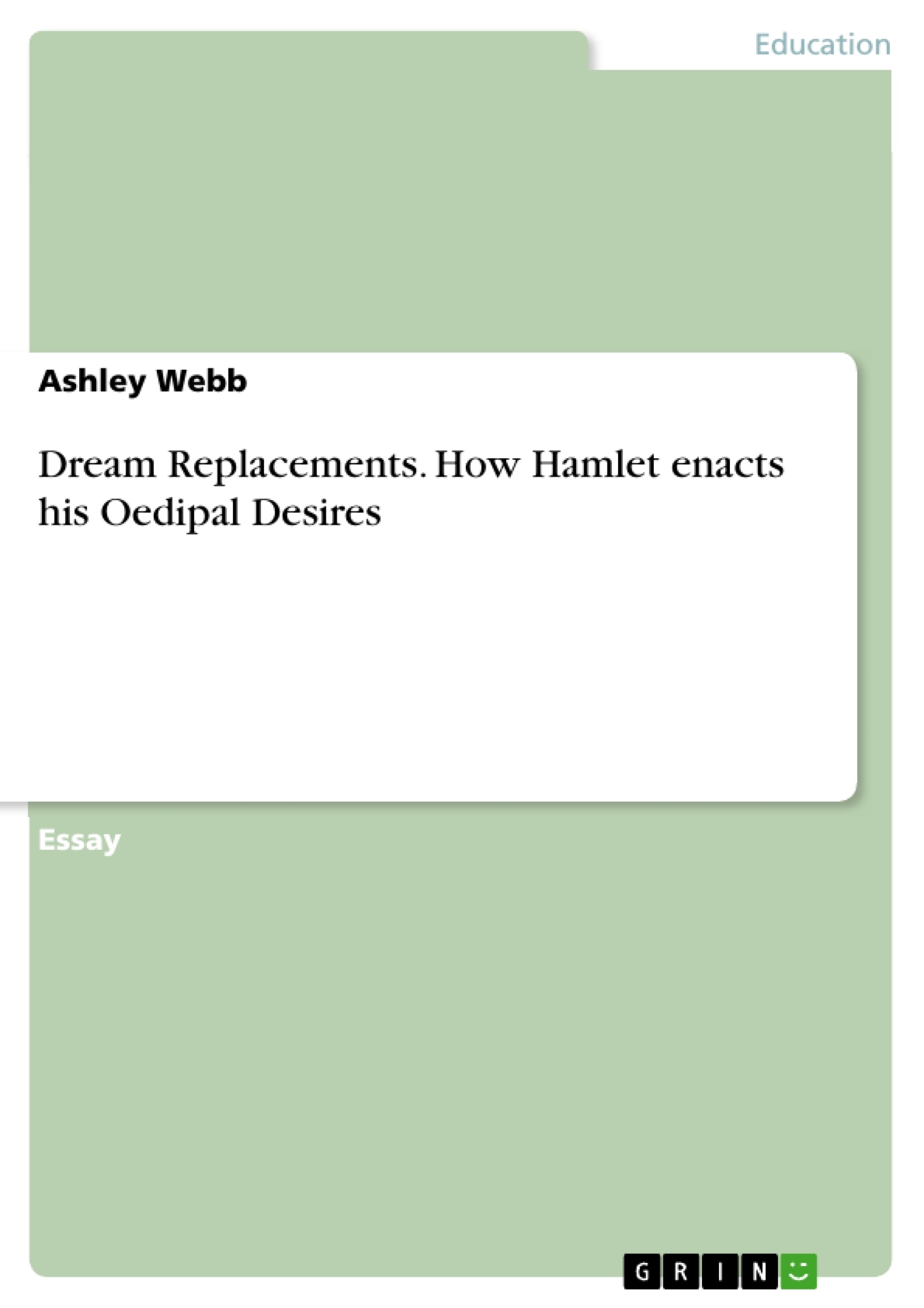In "The Interpretation of Dreams", Freud posits the theory that dreams are manifestations of unconscious and repressed desires. He further states that male children often have an unconscious Oedipal desire to kill their father and replace him by being with their mother. In Shakespeare's Hamlet, the titular character experiences this desire and it manifests itself in various dream-like ways. Since his uncle Claudius has already performed the actions that Hamlet himself desired, Hamlet struggles with anger, jealousy, and confusion as he tries to both suppress those feelings and come to terms with them. His conflicting desires manifest themselves in odd behaviors that those surrounding Hamlet take for madness.
Hamlet's dream-like experiences take several forms. As his subconscious takes over, Hamlet's suppressed desires are manifested. The first instance of this is the appearance of his father's ghost and Hamlet's discussion with that ghost. Whether or not the ghost is a real ghost, it plays the role of Hamlet's subconscious for him. The ghost is able to say things that are suppressed in Hamlet's subconscious and he is unable to admit to himself until the ghost says them aloud.
Table of Contents
- Dream Replacements: How Hamlet Enacts His Oedipal Desires
- Hamlet’s Dream-like Experiences
- Hamlet’s Obsession with His Mother’s Sexuality
- The Wish of Hamlet’s Ego
- Hamlet’s Wish for Revenge
- Hamlet’s Desire for Understanding
- The Deeper Oedipal Desire
- Hamlet’s Anger at His Uncle
- The Play Within the Play
- Hamlet’s Desire to be with His Mother
- Hamlet’s Unfulfilled Desires
Objectives and Key Themes
This essay analyzes Shakespeare's *Hamlet* through the lens of Freudian psychoanalysis, specifically focusing on the titular character's Oedipal desires. The essay examines how Hamlet's repressed desires manifest in dream-like experiences throughout the play, including his interactions with the ghost of his father, his obsession with his mother's sexuality, and his participation in the play within the play. Key themes explored in the essay include:- The manifestation of repressed desires in dreams and dream-like experiences
- The Oedipal complex and its role in Hamlet's psychology
- The conflict between conscious and unconscious desires
- The use of symbolic representation in *Hamlet* to explore these themes
- The impact of repressed desires on Hamlet's actions and his ultimate fate
Chapter Summaries
The essay begins by introducing Freud's theory of dreams as manifestations of repressed desires, particularly the Oedipal complex. It then argues that Hamlet's experiences with the ghost of his father can be interpreted as dream-like replacements for his suppressed desires. The essay continues by analyzing Hamlet's obsession with his mother's sexuality, which it argues is a manifestation of his repressed Oedipal desires. The essay further explores the various interpretations of the ghost's story and what it reveals about Hamlet's unconscious desires. The essay then examines the play within the play as another example of how Hamlet acts out his repressed desires in a dream-like state. It concludes by considering Hamlet's inability to fully act on his desires and the ultimate impact of his repressed Oedipal complex on his fate.Keywords
The key themes and concepts explored in this essay include: Freud, psychoanalysis, Oedipal complex, dreams, dream-like experiences, repressed desires, *Hamlet*, Shakespeare, ghost, sexuality, incest, revenge, play within the play.- Citation du texte
- Ashley Webb (Auteur), 2013, Dream Replacements. How Hamlet enacts his Oedipal Desires, Munich, GRIN Verlag, https://www.grin.com/document/229429




